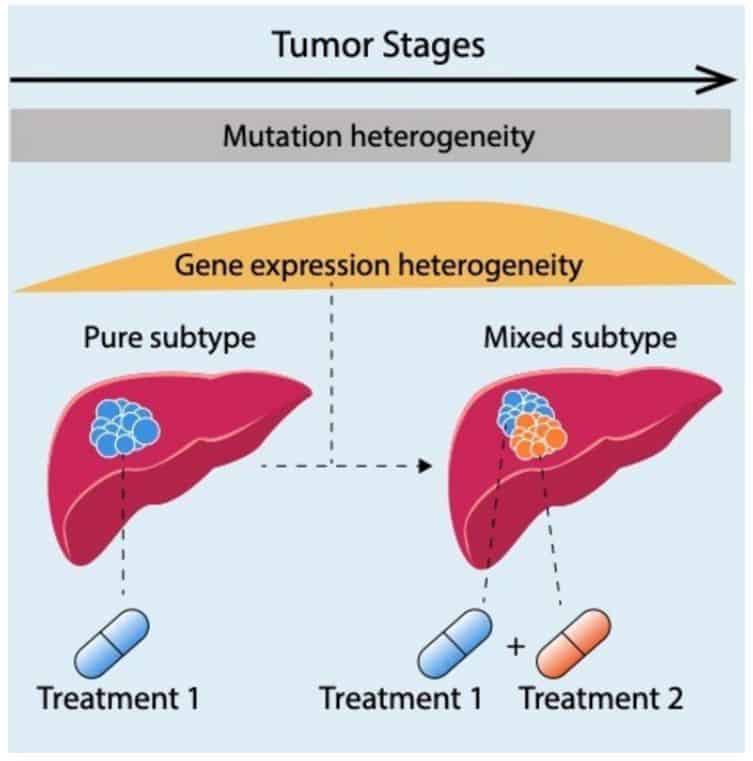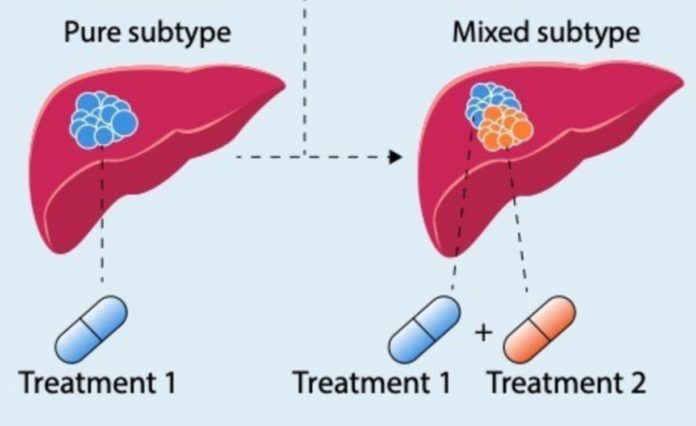A dynamic genetic landscape of tumor heterogeneity in hepatocellular carcinoma (HCC) has been characterized by a group of international investigators.
The Precision Medicine in Liver Cancer throughout Asia-Pacific Network (PLANet) study, which is one of the biggest prospective cohorts for HCC, provided the basis for this investigation.
HCC is the seventh most widespread cancer in the world, but due to its high mortality rate, it is also the fourth largest cause of cancer death. Surprisingly, Asian populations bear a disproportionate 80 percent of the disease burden. Despite much effort, no validated prognostic biomarker for systemic therapy in HCC exists, and treatment success remains low.
To address this unmet clinical need, the PLANet project was started as part of this effort to recruit a prospective HCC patient cohort across various Asian nations in collaboration with the Asia-Pacific Hepatocellular Carcinoma (AHCC) Trials Group. PLANet attempts to better understand intra-tumour heterogeneity (ITH), or molecular diversity within a tumor, as well as how to apply this knowledge to aid patient stratification and treatment in HCC.
In 2017, the researchers discovered that HCC patients have a wide spectrum of genetic ITH.
Figure 1: Hepatocellular carcinomas (HCC) diversify over time, resulting in numerous co-existing subtypes in a considerable number of cases, necessitating the use of multiple systemic medications to treat the disease.

The current work is the first to look at ITH across multi-omic data layers (genome, transcriptome, and immunome) in HCC and is based on a cohort of 67 patients from four Asian countries from the PLANet trial. Researchers discovered differences in both genomic (DNA mutation) and transcriptomic (RNA expression) characteristics in various locations of the same tumor. They discovered that the extent of such variants varies by patient, with over 30 percent of patients having a high transcriptome ITH, meaning that a single tumor can have numerous transcriptomic subtypes.
Such a dynamic, evolving process in HCC helps to explain the poor response to systemic therapy in HCC, where medicines that simply target a specific set of molecular targets are insufficient. The authors used the PLANet cohort to show how combination medicines can potentially address high ITH and improve HCC therapy response rates. The findings of this study provide a unique scientific foundation for the development of novel HCC treatments. The group will focus on ways to improve liver cancer treatment outcomes by addressing this constantly developing heterogeneity in the following phase.
The PLANet study also has offered an atlas for academics and physicians to assess the progression of liver cancer. Such genomic data will give a firm foundation for understanding how individual patients may respond to medication therapies differently, allowing precision medicine to treat patients differently in the future. The Singapore Oncology Data Portal (OncoSG) has made the data from this study publicly available, allowing for the integration, visualization, analysis, and sharing of cancer genomics datasets created in Singapore.
“This study depicted the first full landscape of tumour heterogeneity in HCC, providing a solid basis harnessing tumour evolution for patient prognosis and treatment,” said said Dr. Zhai Weiwei, a former lead investigator at GIS who co-led this work.
“I have been treating HCC for more than 20 years and have conducted multi-national clinical trials in this cancer,” said said Professor Pierce Chow, senior author of the study, overall principal investigator of PLANet, and Senior Consultant, Department of Hepato-Pancreato-Biliary/Transplant Surgery, Division of Surgery and Surgical Oncology at SGH and NCCS, “but HCC remains a very challenging malignancy. Significant scientific breakthroughs are required to further improve patient outcomes and our current findings provide an important step in this direction.”
Source: 10.1093/nsr/nwab192
Image Credit: Credit: A*STAR’s Genome Institute of Singapore
You were reading: New study shows the first full landscape of tumor heterogeneity in HCC
